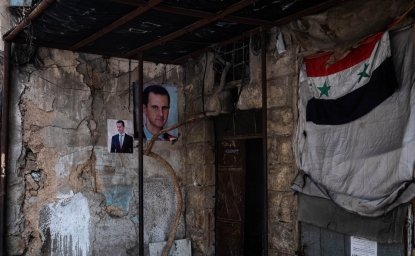#218 Back to the Ballot Box: Evaluating Venezuela's 1995 State and Local Elections, A Conference Report

By Gary Bland, Alfredo Keller, Carlos Raul Hernandez, and Janet Kelly
From the Introduction
This working paper, based on a Woodrow Wilson Center seminar on Venezuela's December 3, 1995 elections, reproduces the two short papers and an edited transcript of the commentary from that event. Following the commentary is a summary of the discussion period that followed the presentation. The Latin American Program would like to mention that Fernando Egaña, Venezuela's minister for communications and information, initially agreed to attend the seminar. Last-minute scheduling problems prevented his attendance.
In the first paper, Alfredo Keller, who is president of the Caracas-based polling firm Consultores 21 and a political advisor to various Latin American governments, argues that the improvement of the economy would not be an issue in these elections, because 59 percent of the electorate perceive their economic problems as results of national government policies. Only 22 percent were concerned about problems that can be addressed at the state and local levels. The political parties, on the other hand, were doing all they could to maintain their "quotas of power" by forming alliances completely irrespective of ideology or inter-party animosity at the national level.
In the second paper, Carlos Raúl Hernández, a Venezuelan political scientist and former AD national senator who advised the AD-COPEI gubernatorial campaign in the state of Lara, writes that the December 3 vote would occur "under extremely difficult conditions for the democratic system." Economic and social crisis under the Caldera government--populist controls, inflation, unemployment, and mismanagement of the banking collapse--would be the defining elements of the campaign. Opinion polls indicated that Venezuelans "think of the future in highly pessimistic terms and half of the population wants to emigrate. Only 12 percent believe they have a future." Pointing out that corruption has been the basis for Venezuela's democratic instability, Hernández notes that the nation's comptroller general reports that 80 percent of the ministry of transportation's contracts are illegal and that the country was recently ranked among the world's most corrupt nations.
Commentator Janet Kelly, academic director of the Institute for the Advanced Study of Administration (IESA) in Caracas and editor of a major study of Venezuelan municipal government, argues that the political situation can generally be viewed in positive terms--even if she herself is not necessarily optimistic. First, politics have become local. Candidates are responding to local issues, such as the condition of sidewalks, and that is sparking a resurgence of civic spirit in communities. Second, although the level of indifference is high, abstention may not be as serious an issue as is often supposed. The rate may be more of a return to normality--many industrial countries have high rates of abstention.

Latin America Program
The Wilson Center’s prestigious Latin America Program provides non-partisan expertise to a broad community of decision makers in the United States and Latin America on critical policy issues facing the Hemisphere. The Program provides insightful and actionable research for policymakers, private sector leaders, journalists, and public intellectuals in the United States and Latin America. To bridge the gap between scholarship and policy action, it fosters new inquiry, sponsors high-level public and private meetings among multiple stakeholders, and explores policy options to improve outcomes for citizens throughout the Americas. Drawing on the Wilson Center’s strength as the nation’s key non-partisan policy forum, the Program serves as a trusted source of analysis and a vital point of contact between the worlds of scholarship and action. Read more

Explore More
Browse Insights & Analysis
Latin American Program Working Paper Series (201-250)

Assad's Reign Ends: Rebel Forces Overthrow Decades-Long Rule in Syria

